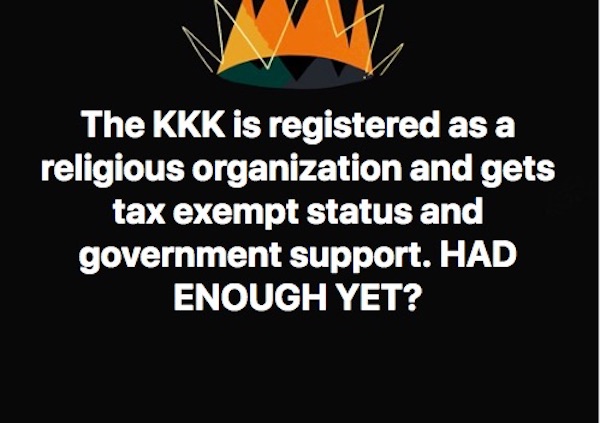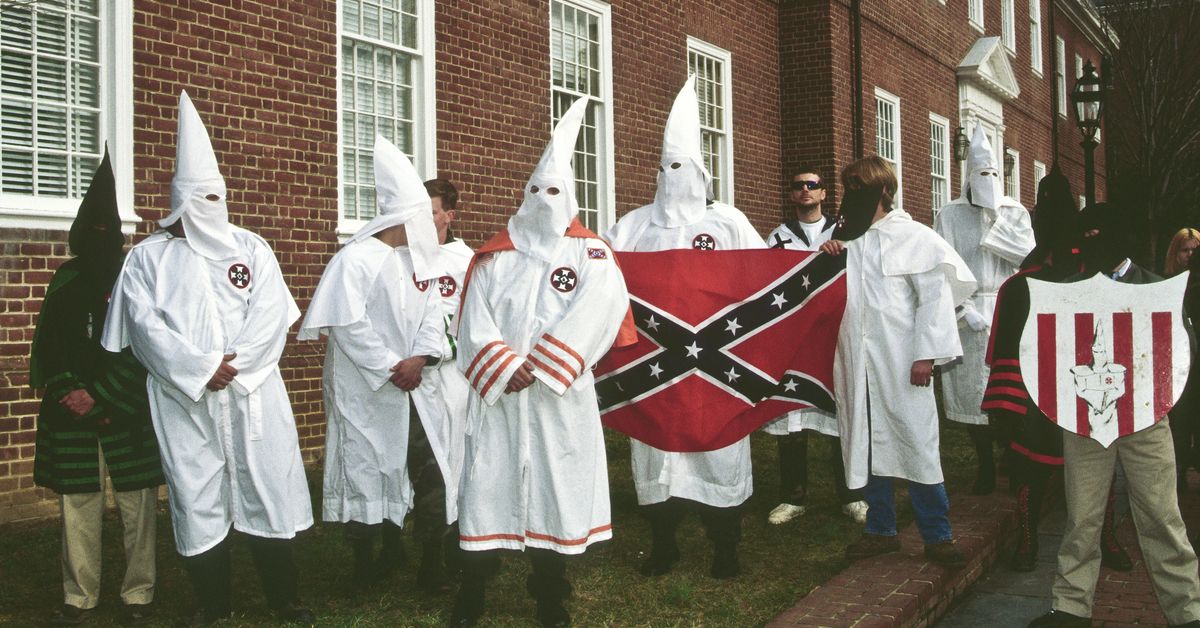The Ku Klux Klan does not have tax-exempt status.
Some hate groups other than the KKK do have tax-exempt status.
On 13 April 2018, a meme circulating on social media reported that the Ku Klux Klan — a virulently violent organization that has become historically synonymous with institutional racism in the United States — had been given tax-exempt status as a religious organization:

Unsurprisingly, the meme included no citations and was misleading and inaccurate: although some hate groups do have tax-exempt status, the Ku Klux Klan as an overarching organization does not. According to Heidi Beirich of the Southern Poverty Law Center (SPLC), the KKK no longer exists as a national organization, and while small splinter KKK groups operate around the U.S., they do not coordinate or cooperate: "We haven’t had a unified Klan group since the period of the Civil Rights Movement. The United Klans of America was organized cross-country and was centralized terrorist organization, really. The Klan groups now are separate organizations who don’t like each other and don’t work with each other."
That wasn't always the case, however. According to Beirich, who directs the SPLC's Intelligence Project (which tracks extremism, anti-government hardliners, and hate groups), the Klan experienced two resurgent eras after the Civil War in which its numbers and influence soared: during the 1920s (at the height of a national debate about immigration), and during the Civil Rights era of the 1950s and 1960s. The latter era effectively ended in 1984, when the SPLC successfully sued the last nationally-organized group, the United Klans of America, for lynching 19-year-old Michael Donald in Mobile, Alabama.
The verdict against the group, along with criminal convictions against the men responsible for the murder, essentially put the national KKK out of existence:
The two Klansmen who carried out the ritualistic killing were eventually arrested and convicted. Convinced that the Klan itself should be held responsible for the lynching, Center attorneys filed a civil suit on behalf of Donald's mother, Beulah Mae Donald vs. United Klans. In 1987, the Center won an historic $7 million verdict against the men involved in the lynching.
The verdict marked the end of the United Klans, the same group that had beaten the Freedom Riders in 1961, murdered civil rights worker Viola Liuzzo in 1965, and bombed Birmingham's 16th Street Baptist Church in 1963.
The SPLC maintains a list of 82 hate groups -- with agendas that include white nationalism, anti-Muslim, anti-gay rights, and anti-immigration -- that either currently have tax-exempt status or have had that status revoked. That list includes the National Policy Institute, a group run by white supremacist Richard Spencer that lost its tax-exempt status in 2017 because Spencer failed to file necessary paperwork to maintain it.
We located a nonprofit organization called the National Ku Klux Klan Museum in Maryland, but it doesn't appear to be active, and its purpose is unclear. We left a phone message with the organization's founder but did not receive a response.

